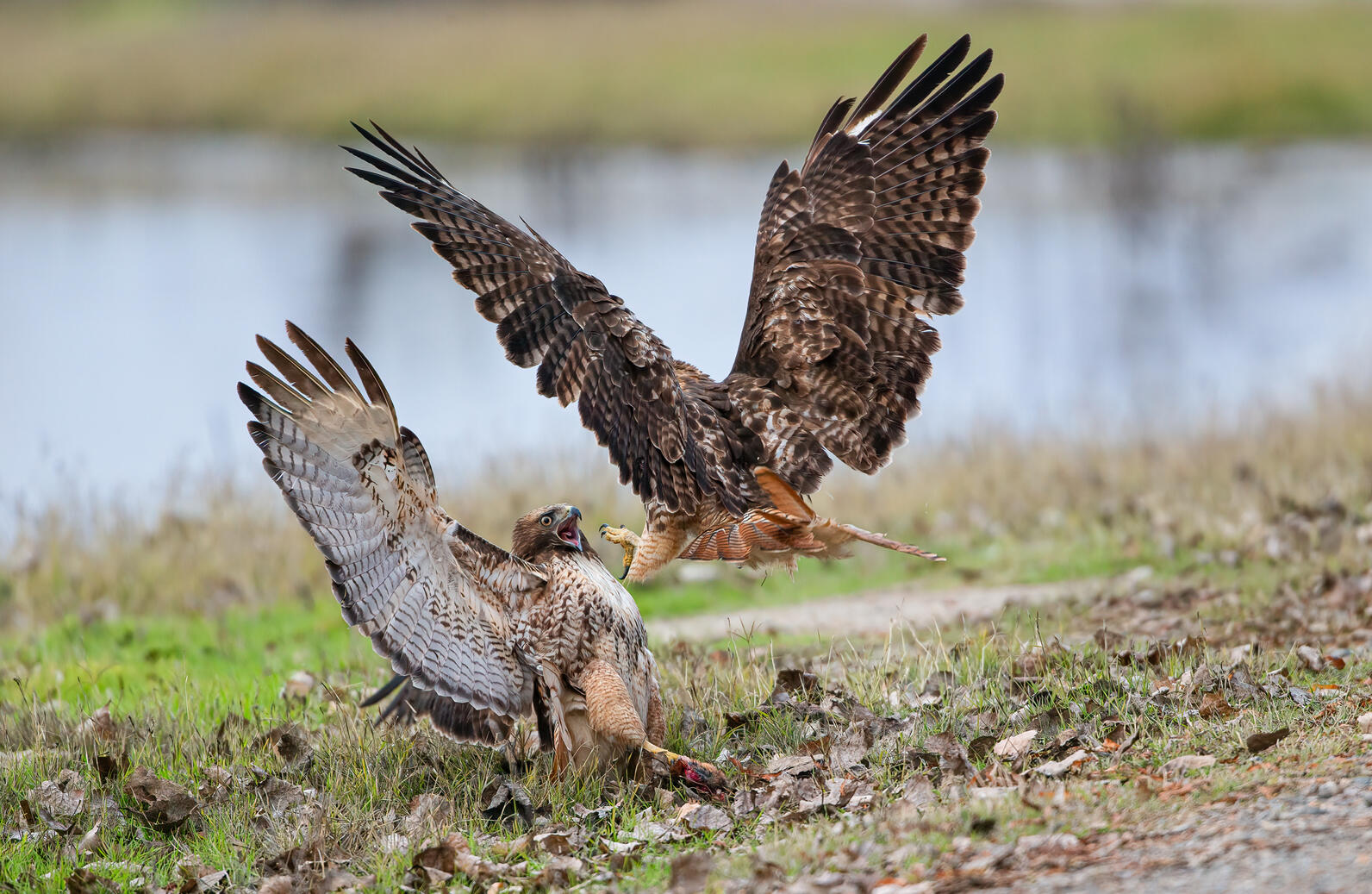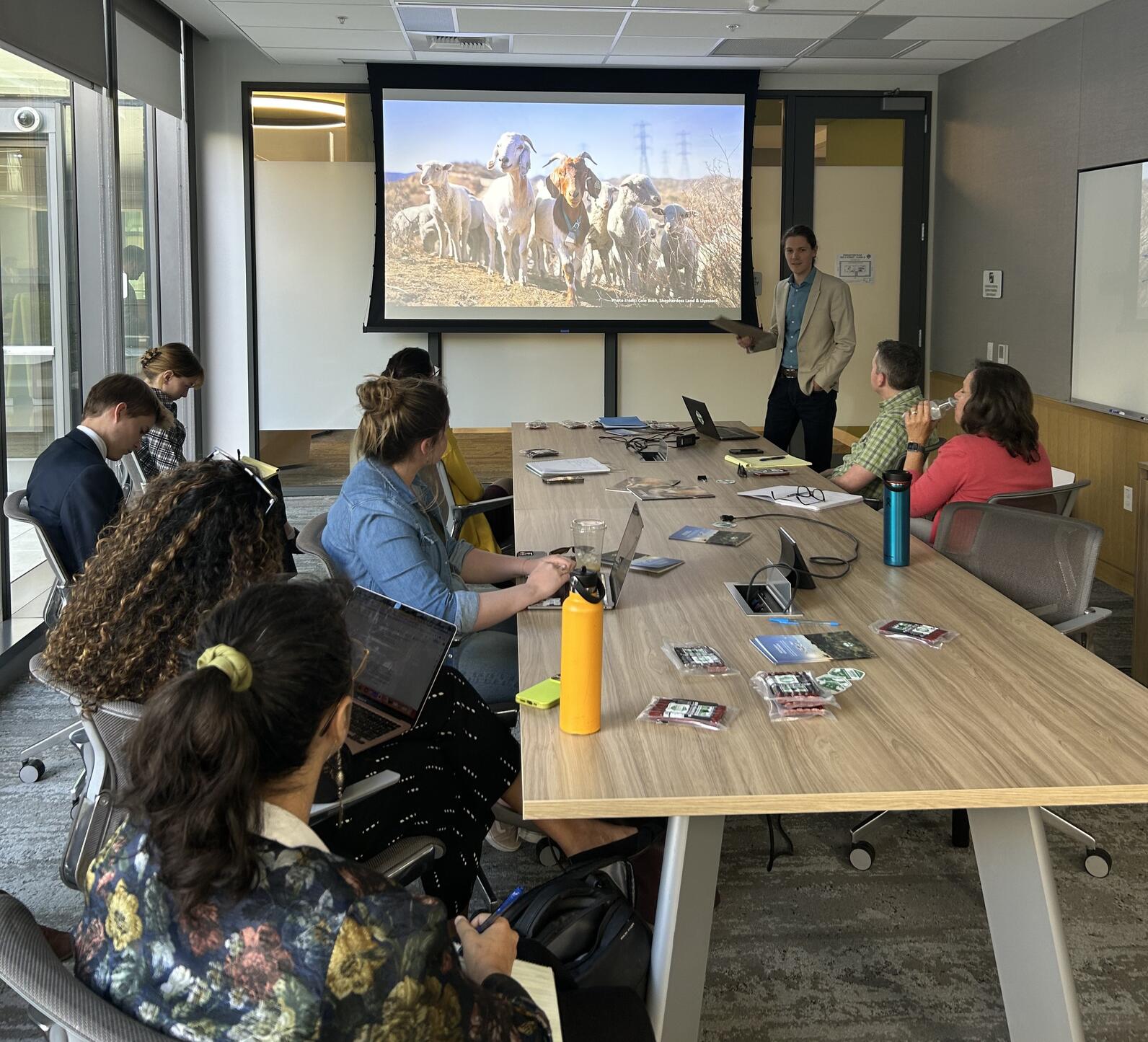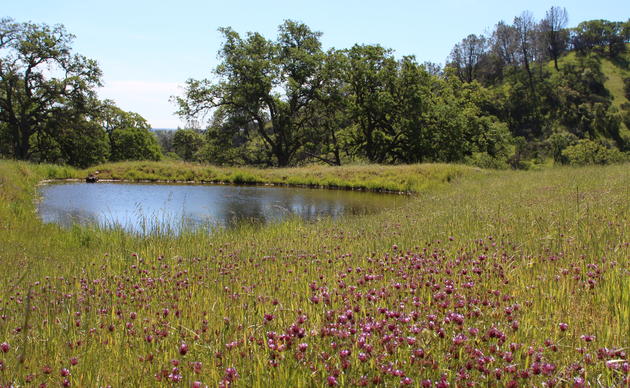
Last week, Audubon California held a panel discussion together with Point Blue Conservation Science, the California Climate and Agriculture Network (CalCAN), and Sacramento Valley rancher Adam Cline to educate policymakers on the benefits of sustainable grazing practices on California’s rangelands. The robust discussion stressed the urgent need to slow the loss of rangelands, stabilize declining populations of grassland birds and other wildlife, and to make rangeland a part of climate change mitigation and adaptation.
Briefing participants learned about regenerative ranching practices that benefit landscapes, wildlife, and climate, including grazing management that restores habitat to benefit grassland bird species, as well as ecological restoration techniques that increase biodiversity, improve rangeland health, and enhance the ability of rangelands to sequester carbon and curtail the effects of climate change.

“Ranchers in California have demonstrated their commitment to conservation and their desire to incorporate practices that help them be better stewards of their land,” said Pelayo Alvarez, California Director for the Audubon Conservation Ranching Initiative. “With 40 million acres of rangelands across the state mostly in private hands, that means that we have a tremendous opportunity to partner with the ranching community to achieve the state’s biodiversity and climate goals.”
This legislative session, Audubon California is sponsoring Assembly Bill (AB) 720 by Assemblymember Dawn Addis (D-Morro Bay). AB 720 would offer grants for planning and implementation of conservation practices on rangelands under the Wildlife Conservation Board’s (WCB’s) existing Rangeland, Grazing Land, and Grassland Program. The bill would provide technical and financial assistance to ranchers and land managers towards the implementation of land management practices in alignment with California’s 30x30 and Natural and Working Lands Climate Smart Strategy (NWL CSS) goals.
Point Blue Conservation Science and CalCAN discussed their organizations’ similar efforts to work with landowners and ranchers to reduce fire risk and support ecological health across California.
“In addition to its biodiversity benefits, prescribed grazing plays a critical role in reducing wildfire risks in the state,” said Brian Shobe, deputy policy director with the California Climate and Agriculture Network. “Cattle grazing alone converts approximately 12 billion pounds of wildfire fuels per year into food and carbon-sequestering manure. We are asking the state to invest in prescribed grazing planning and infrastructure to keep ranchers ranching, expand targeted grazing near fire-threatened communities, and prevent catastrophic wildfires and their associated greenhouse gas emissions.”
Adam Cline, cattle rancher and owner of Cline Livestock Company, shared his perspective on the challenges and opportunities of improving natural resources while leading a successful cattle grazing operation throughout Northern California and Western Nevada.
“I, and many other California ranchers, are interested in improving the lands on which we manage cattle grazing. Often, the infrastructure we need to increase land health is costly and can’t be implemented with the tough economics of the ranching business. Grant programs, such as those implemented in AB 720, would help defray some of the costs of conservation practices and help get more land under conservation focused management.”
AB 720 passed the Senate Natural Resources and Water committee earlier this month with bipartisan support and now heads to the Senate Appropriations Committee for a review of the bill’s fiscal impact.
By Samantha Samuelsen
Support Bobcat Ranch
Your gift supports our work to develop & promote bird-friendly cattle ranching practices in CA and to protect and restore native grassland habitat for birds.




